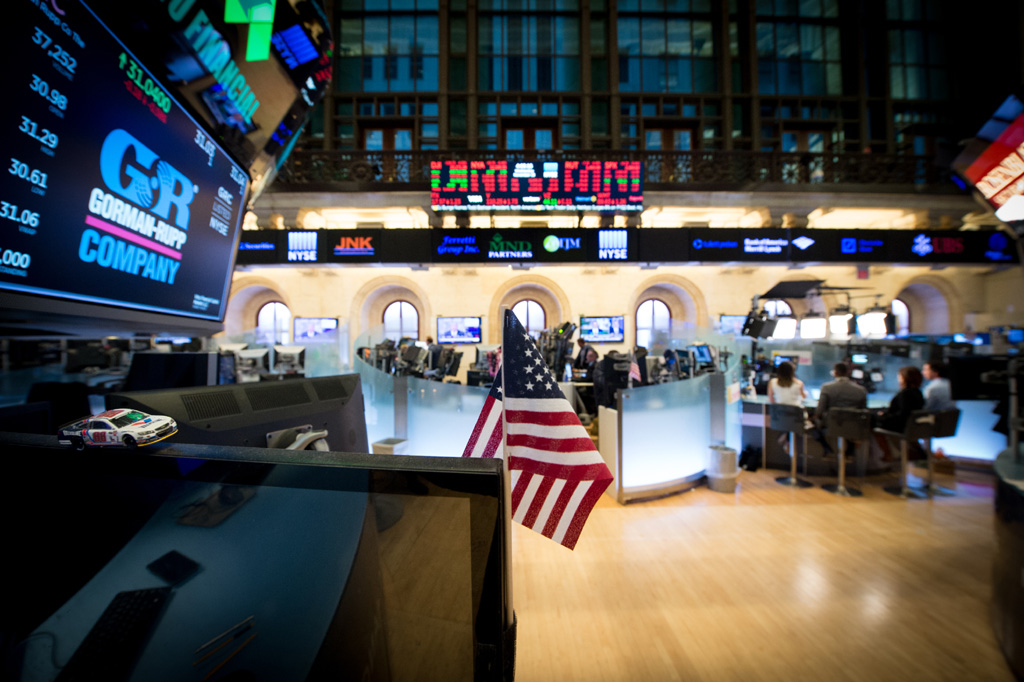 LONDON: World shares and bond yields rode a renewed surge in risk appetite on Tuesday as investors turned optimistic about US-China trade talks and cheered Washington's deal to avoid another government shutdown.
LONDON: World shares and bond yields rode a renewed surge in risk appetite on Tuesday as investors turned optimistic about US-China trade talks and cheered Washington's deal to avoid another government shutdown.
Tokyo's Nikkei set the tone with its best day of the year so far and, as Europe's traders hauled the STOXX 600 back towards two-month highs set last week, it was little surprise to see Wall Street futures pointing higher.
Germany's DAX jumped as much as 1.3 percent and Paris and Milan were both up 1 percent, though London's FTSE lagged amid UK PLC's ongoing Brexit uncertainty.
The other big focus was the dollar, which hovered at a two-month high having just scored its longest winning streak - eight days straight - in two years.
"We have had two bits of relatively good news overnight - optimism about the US shutdown not resuming and optimism about a trade deal," said Societe Generale strategist Kit Juckes.
"Equities are higher, bond yields are a little bit higher, yen and Swiss franc weakest of the major currencies, so it's sort of risk-on rules OK!"
Another risk-sensitive currency the Australian dollar also gained and as well as the Japanese yen and Swiss franc, US Treasuries and German Bunds, which are also traditional safety-plays, also sold off.
Juckes said he reckoned there was now a 75 percent chance that a ratcheting up of US tariffs on Chinese goods will now be avoided and a 95 percent chance that another US government shutdown will be averted.
Those odds got a boost after US lawmakers reached a tentative deal on border security funding, though aides did caution that it did not contain the $5.7 billion President Donald Trump wants to build a wall on the Mexican border.
US and Chinese officials had also expressed hopes that the new round of talks, which began in Beijing on Monday, would bring them closer to easing their near year-long trade war.
Beijing and Washington are trying to hammer out a deal before a March 1 deadline, without which US tariffs on $200 billion worth of Chinese imports are scheduled to increase to 25 percent from 10 percent.
"There will be no winner in a trade war. So at some point they will likely strike a deal," said Mutsumi Kagawa, chief global strategist at Rakuten Securities in Tokyo.
KNOT THE NORMAL VIEW
Underscoring the dramatic turn this year, Bank of America said emerging markets - which in 2018, suffered one of their worst years on record - were now the most "crowded trade" among its clients with $625 billion of asset-buying firepower.
S&P 500 e-mini futures, meanwhile, were up after a mixed Monday, with trade-sensitive industrial bellwethers, Boeing and Caterpillar and some major chipmakers all up in pre-market moves.
Most of Asia had nudged higher overnight but it was Japan's Nikkei that caught the eye as its scored its best day of the year so far with a 2.6 percent surge, having started the day at a one-month low.
With the yen backtracking, shares of exporters such as automakers and machinery makers had led the charge.
Separately, Deutsche Bank noted it was also 20 years since Japan cut interest rates to zero, something now standard in large parts of Europe.
The yen's weakness came as the dollar consolidated its longest unbroken rally in two years against a basket of six major currencies.
The dollar popped up to a six-week high of 110.65 yen . In contrast, the euro dropped to as low as $1.1267, its weakest in 2-1/2 months, and last traded at $1.12790.
Even Klaas Knot, one of the ECB's arch hawks, was suddenly sounding cautious about the central bank ending almost a decade of heavy euro zone stimulus. "At this moment a wait-and-see attitude is probably the optimal attitude," Knot said in an interview with the Financial Times.
Although the Federal Reserve's dovish turn dented the dollar earlier this month, analysts also note the US currency still has the highest yield among major FX peers and that the Fed continues to shrink its balance sheet.
"It has been particular strong as of late again because of the decoupling between the US and the rest of world if you look at (economic) surprise indicators," Andrey Kuznetsov, a bond portfolio manager at Hermes Investment Management, said.
In commodity markets, oil prices also jumped up as traders weighed support from OPEC-led supply restraint and a slowdown in the global economy.
US crude futures traded at $53.64 per barrel, up $1.42. Brent crude rose $1.20 percent to $62.89 per barrel. Gold was a touch stronger too at $1,314 an ounce.























Comments
Comments are closed.